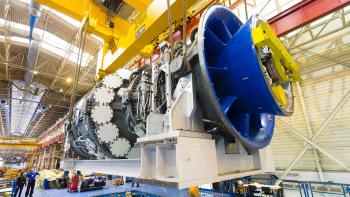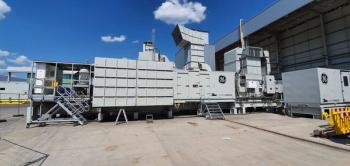
New Siemens Energy firm will be independent but linked to parent firm
Siemens AG has answered several key questions over how its energy spin-off will look like in the near term. Key among them is stake sale and potentially allowing for a minority status so the new company is autonomous.
Siemens AG to spin off 55 percent of Siemens Energy to Siemens shareholders. Plans call for further reducing Siemens’ stake significantly within 12 to 18 months after spin-off’s effective date. Siemens AG contractually obligated to ensure Siemens Energy’s autonomy and independence. Initial listing of new shares planned for September 28, 2020
Siemens AG has decided to hold an Extraordinary Shareholders’ Meeting on July 9, 2020. Siemens shareholders are to automatically receive one share of Siemens Energy AG for every two shares of Siemens AG. Fifty-five percent of Siemens Energy will be spun off to Siemens shareholders.
Depending on the strategic and operational development of the two companies, Siemens AG intends to further reduce its stake in Siemens Energy significantly within 12 to 18 months. In addition, Siemens has placed itself under a contractual obligation to refrain from exercising a controlling influence over the new company in the future. Subject to approval by the Extraordinary Shareholders’ Meeting, plans call for the spin-off to take place, as announced, by the end of September 2020. The initial listing is to take place on September 28th, 2020.
The new Siemens Energy will have about 91,000 employees worldwide (as of March 31, 2020). Its products will include, among other things, combined cycle turbines, generators, transformers and compressors. In the area of wind turbines, Siemens Energy hold a 67 percent stake in Siemens Gamesa Renewable Energy.
As of September 30, 2019, Siemens Energy’s order backlog stood at €77 billion. In fiscal 2019, Siemens Energy generated revenue of about €29 billion according to the Combined Financial Statements of Siemens Energy AG as of September 30, 2019, which were prepared on a voluntary basis. If severance charges of around €0.3 billion had been excluded, the adjusted EBITA would have been about €1.3 billion.
According to the Combined Financial Statements of Siemens Energy AG as of March 31, 2020, which were prepared on a voluntary basis, equity totaled about €17.3 billion (IFRS), corresponding to an equity ratio of 37.8 percent. Siemens Energy has been provided with liquidity equivalent to about €6.2 billion. Of this amount, around €4.1 billion will be used to settle liabilities during the period leading up to the spin-off. In addition, a bank consortium has confirmed a revolving credit facility of €3.0 billion.
After the spin-off, Siemens Energy will be managed separately and independently. A so-called deconsolidation agreement signed with Siemens AG ensures this status. Under the terms of this agreement, Siemens AG has obligated itself to refrain from exercising any direct or indirect controlling influence over the new company. Among other things, the agreement requires that the Supervisory Board of Siemens Energy AG include no more than three representatives of Siemens AG. In addition, voting rights will be limited to the extent that no decisions on certain topics – in particular, on the election of Supervisory Board members – can be implemented unilaterally against the wishes of the other shareholders of Siemens Energy AG.
After the spin-off, the Supervisory Board of Siemens Energy will have 20 members, ten representing the shareholders and ten representing employees. Before the spin-off, Siemens has already been able to enlist high-caliber individuals from the political domain, the business community and the energy industry to serve as shareholder representatives on the Supervisory Board: Dr. Christine Bortenlänger, Sigmar Gabriel, Geisha Jimenez Williams, Dr. Hubert Lienhard, Hildegard Müller, Laurence Mulliez and Randy Zwirn. Here, special consideration was not only given to securing the relevant competencies, but also to ensuring diversity and global mindset.
Joe Kaeser, Ralf P. Thomas and Matthias Rebellius, Chief Operating Officer of Smart Infrastructure, have been designated to serve as Siemens’ representatives on the Supervisory Board of Siemens Energy AG. Plans call for Joe Kaeser to be elected Chairman of the Supervisory Board and for Ralf P. Thomas to head the Audit Committee.
As part of the Siemens ecosystem, Siemens Energy will continue to use the “Siemens Energy” and “Siemens Gamesa” brands. Every year, Siemens Energy will pay a margin-based license fee of between 0.3 percent and 1.2 percent of revenue (excluding Siemens Gamesa) for use of the brand. The license fee to be paid for fiscal 2020 is expected to be in the mid-double-digit million range.
During a transition period, Siemens Energy will also use services provided by Siemens AG in areas such as human resources, accounting, purchasing and IT as well as in selected areas of research and development. For the entire period, the related transitional services agreements – most of which will run for several years – and long-term service agreements will have a total volume of about €1.0 billion.
Newsletter
Power your knowledge with the latest in turbine technology, engineering advances, and energy solutions—subscribe to Turbomachinery International today.




